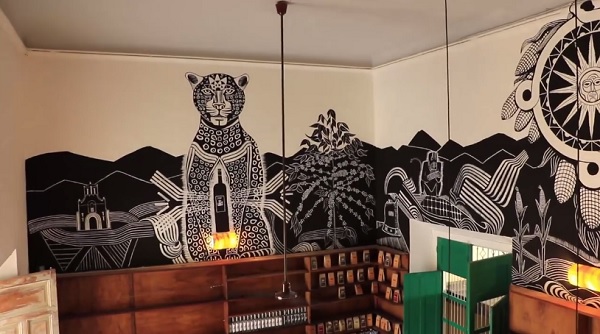Pox (pronounced posh) is a traditional drink that originated among the Tzotzil Maya people in the state of Chiapas, Mexico. Pox means medicine in the Tzotzil language, and it was used for religious ceremonies and healing rituals.
Pox is made from corn, wheat, sugar cane, and sometimes other ingredients, such as fruits or herbs. It is fermented and then distilled, resulting in a potent and slightly sweet liquor that can have a smoky flavor.
Pox has a long and mysterious history, dating back to the preHispanic times. It was considered a sacred drink that connected the Maya with their gods and ancestors. It was also a symbol of resistance against the Spanish colonizers, who tried to ban it.
Pox was mostly consumed by men, especially elders and priests, who drank it before performing rituals or making important decisions. Women and children were not allowed to drink pox, except for special occasions or medical purposes.
Pox was rarely seen outside of Chiapas until the 2000s when some producers started to commercialize it and sell it in other regions of Mexico and abroad. Nowadays, pox is gaining popularity among tourists and locals alike, who enjoy its unique taste and cultural value.

Pox can be found in bars, restaurants, and shops, especially in San Cristobal de las Casas, the cultural capital of Chiapas. There are also different varieties of pox, such as white, yellow, or flavored with fruits like peach or raspberry.
Pox is more than just a drink; it is a part of the Maya identity and heritage. It represents their spirituality, resilience, and creativity. Pox is a drink that honors the past, celebrates the present, and hopes for the future.
Modern Mayas in the state of Chiapas have managed to preserve “Pox”, but they have produced it only for their consumption. Besides, this magnificent drink is produced in a very mystical environment. The indigenous people get dressed in their typical costumes. Pox is distilled up in the mountains, where there’s always a mist. Musicians play traditional prehispanic instruments during the process of manufacture, all wrapped in a mystical scenery of an utmost magical momento. The people who had witnessed this ritual treasure the moment as a once in a lifetime experience.
The next thing I did was to ask my friend what “Pox” was; he had been living in Chiapas for many years, so, he just told me that it was a traditional drink, very important for the Mayan culture and the indigenous people of Chiapas.
And from that moment on, my goal has been to dignify this drink, to put it in the place it deserves. This has been a fantastic journey and I have been a pioneer trying to regulate, certify, and improve the production processes of “Pox”. It has not been easy, I have re- ceived absolutely zero support from the government; not in Chiapas, not here either.

However, after eight years, I am currently the only person who has registered this product legally, formally, and officially,and with very positive results.
TYT Newsroom



